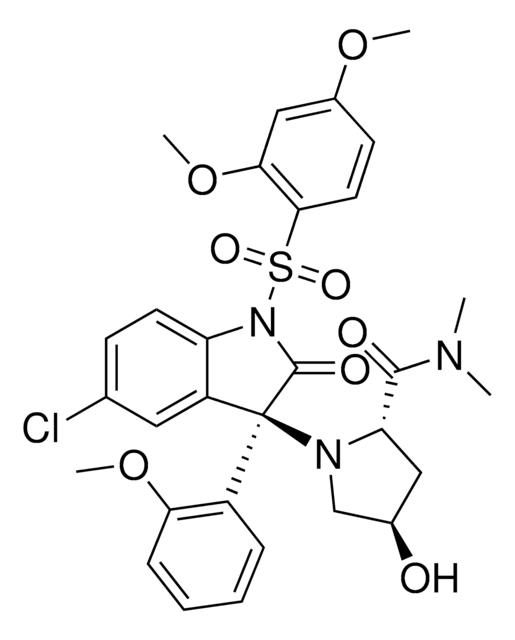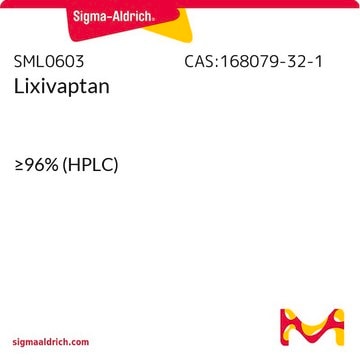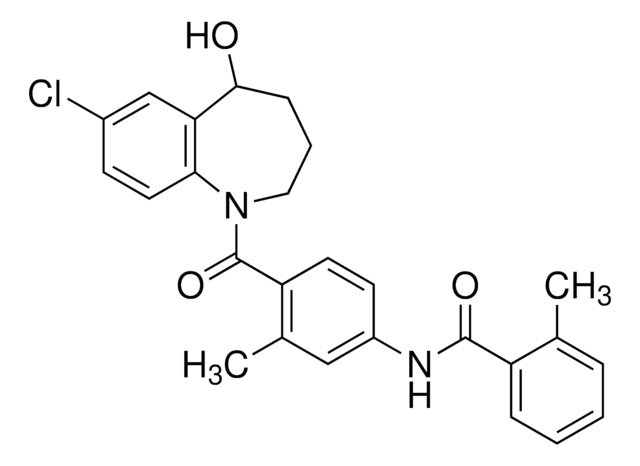O1016
OPC-21268 hydrate
≥98% (HPLC)
Synonym(s):
1-{1-[4(3-acetylaminopropoxy)benzoyl]-4-piperidyl}-3,4-dihydro-2(1H)-quinolinone hydrate, N-[3-[4-[[4-(3,4-dihydro-2-oxo-1(2H)-quinolinyl)-1-piperidinyl]carbonyl]phenoxy]propyl]-acetamide hydrate
About This Item
Recommended Products
Quality Level
Assay
≥98% (HPLC)
form
powder
color
white to off-white
solubility
DMSO: ≥20 mg/mL
originator
Merck & Co., Inc., Kenilworth, NJ, U.S.
storage temp.
2-8°C
SMILES string
O.CC(=O)NCCCOc1ccc(cc1)C(=O)N2CCC(CC2)N3C(=O)CCc4ccccc34
InChI
1S/C26H31N3O4.H2O/c1-19(30)27-15-4-18-33-23-10-7-21(8-11-23)26(32)28-16-13-22(14-17-28)29-24-6-3-2-5-20(24)9-12-25(29)31;/h2-3,5-8,10-11,22H,4,9,12-18H2,1H3,(H,27,30);1H2
InChI key
QTCWOUIERWBMQV-UHFFFAOYSA-N
Biochem/physiol Actions
Features and Benefits
Signal Word
Warning
Hazard Statements
Precautionary Statements
Hazard Classifications
Acute Tox. 4 Oral - Aquatic Acute 1
Storage Class Code
11 - Combustible Solids
WGK
WGK 3
Flash Point(F)
Not applicable
Flash Point(C)
Not applicable
Certificates of Analysis (COA)
Search for Certificates of Analysis (COA) by entering the products Lot/Batch Number. Lot and Batch Numbers can be found on a product’s label following the words ‘Lot’ or ‘Batch’.
Already Own This Product?
Find documentation for the products that you have recently purchased in the Document Library.
Our team of scientists has experience in all areas of research including Life Science, Material Science, Chemical Synthesis, Chromatography, Analytical and many others.
Contact Technical Service





![[deamino-Cys1, D-Arg8]-Vasopressin acetate salt hydrate ≥95% (HPLC)](/deepweb/assets/sigmaaldrich/product/structures/215/222/82da3633-80ea-463d-8b55-e99fb8e442e0/640/82da3633-80ea-463d-8b55-e99fb8e442e0.png)




